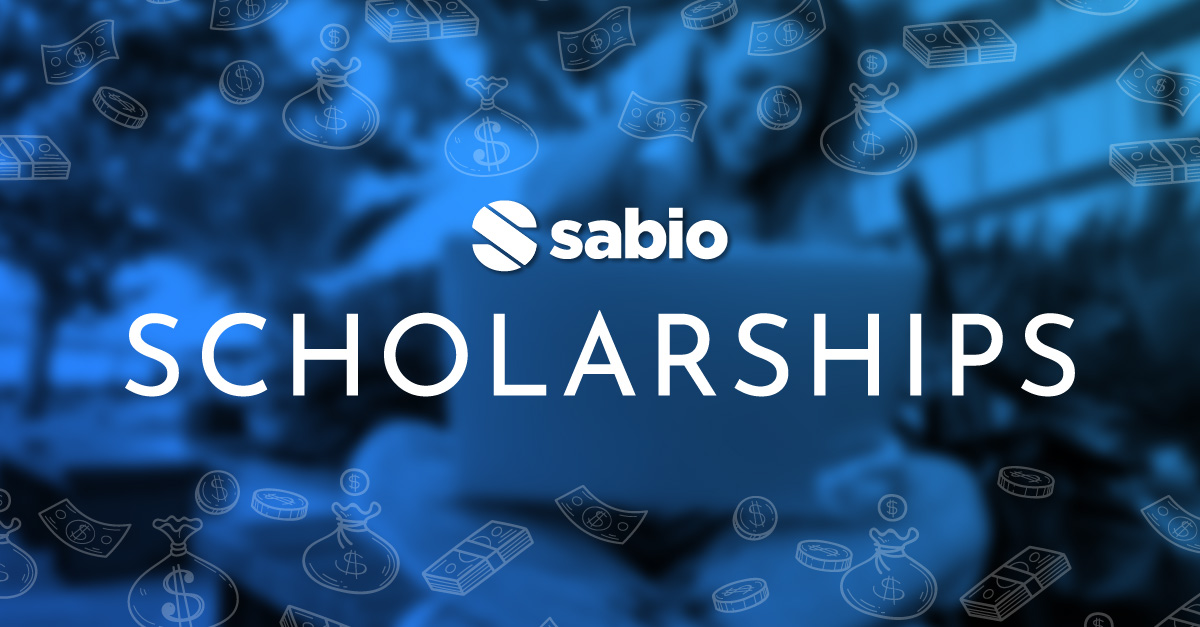Types of Coding Bootcamp Scholarships
Securing funding for a coding bootcamp can significantly reduce the financial burden of intensive training. Numerous scholarship opportunities exist, each with its own eligibility requirements and application process. Understanding these different types of scholarships is crucial for prospective students seeking financial aid.
Many coding bootcamps and external organizations offer scholarships to aspiring developers. These scholarships are designed to broaden access to tech education and support individuals from diverse backgrounds. The availability and specifics of these programs vary, so thorough research is recommended.
Merit-Based Scholarships, Are tere scholarships for coding bootcamps
Merit-based scholarships reward academic excellence, coding proficiency, or demonstrable potential in the tech field. Eligibility often involves submitting transcripts, portfolios showcasing previous coding projects, or completing coding challenges to demonstrate skills. Some bootcamps may also consider leadership experience or community involvement as merit indicators. Successful applicants typically exhibit a strong track record of achievement and a clear passion for coding. For example, a bootcamp might offer a scholarship to the applicant with the highest score on a pre-admission coding assessment.
Need-Based Scholarships
Need-based scholarships prioritize financial need as the primary eligibility criterion. Applicants typically need to provide documentation of their financial circumstances, such as tax returns, bank statements, or proof of income. The application process often involves completing a detailed financial aid form and potentially undergoing a financial review by the bootcamp or scholarship provider. These scholarships aim to make coding bootcamps accessible to individuals who may not otherwise be able to afford the tuition. For instance, a scholarship might be awarded to a single parent demonstrating a significant financial hardship.
Employer-Sponsored Scholarships
Several companies sponsor scholarships for their employees or prospective employees to upskill in coding. These scholarships often come with conditions, such as a commitment to work for the sponsoring company for a specific period after completing the bootcamp. Eligibility requirements typically include current employment or a job offer with the sponsoring company. The application process usually involves internal application procedures within the company. For example, a tech firm might offer scholarships to its customer service representatives interested in transitioning into software development roles.
Veteran-Specific Scholarships
Many organizations offer scholarships specifically for veterans and active military personnel. Eligibility requires proof of military service, such as a DD-214 form. These scholarships often aim to support veterans in transitioning to civilian life and pursuing careers in technology. The application process usually involves submitting military service documentation along with a standard scholarship application. A veterans’ organization might partner with a bootcamp to provide tuition assistance to qualifying veterans.
Comparison of Scholarship Application Processes
The application process can vary significantly across different scholarship types. Below is a comparison of three common types:
| Scholarship Type | Application Materials | Review Process | Timeline |
|---|---|---|---|
| Merit-Based | Transcripts, portfolio, coding challenge results, resume | Assessment of skills and achievements | Several weeks to months |
| Need-Based | Financial documentation (tax returns, bank statements), FAFSA (if applicable), personal statement | Financial need assessment, review of application materials | Several weeks to months |
| Employer-Sponsored | Internal company application, resume, performance reviews | Internal company review process | Varies depending on company policy |
Scholarship Amounts and Funding

Securing funding for a coding bootcamp can significantly impact accessibility and affordability. Scholarships play a crucial role in bridging the financial gap, making intensive training programs attainable for a wider range of aspiring developers. The amount of financial assistance offered varies greatly depending on several factors, including the bootcamp itself, the scholarship provider, and the applicant’s profile.
The potential impact of scholarships on the overall cost of a bootcamp is substantial. A partial scholarship can alleviate a significant portion of tuition fees, making the program financially manageable. In some cases, full scholarships can completely eliminate tuition costs, enabling individuals to focus solely on their studies without the added stress of debt. This accessibility significantly broadens the talent pool and encourages diversity within the tech industry.
Typical Scholarship Award Amounts
Scholarship awards for coding bootcamps vary widely. Some organizations offer partial scholarships covering a percentage of tuition (e.g., 25%, 50%, or 75%), while others provide full scholarships covering the entire cost of the program, which can range from $10,000 to $20,000 or even more depending on the bootcamp’s duration and location. For example, a bootcamp with a $15,000 tuition fee might offer a $5,000 partial scholarship, reducing the student’s out-of-pocket expense to $10,000. A full scholarship, on the other hand, would completely eliminate this cost. Specific award amounts are usually detailed in the scholarship program’s guidelines.
Factors Influencing Scholarship Value
Several factors influence the value of a scholarship offer. These include the amount of financial aid provided, the specific requirements for eligibility, and any associated terms and conditions. The reputation and prestige of the bootcamp also play a role, as scholarships from highly regarded institutions may be more valuable due to the increased potential for career advancement post-graduation. Furthermore, the availability of additional resources or support services provided alongside the scholarship, such as mentorship or career placement assistance, can significantly enhance its overall value. For instance, a $5,000 scholarship with guaranteed career support might be considered more valuable than a $7,000 scholarship without such additional benefits. A comprehensive assessment of these factors is essential for prospective students to determine the best scholarship opportunities.
Impact of Scholarships on Bootcamp Selection
Securing funding significantly impacts a prospective student’s coding bootcamp decision. The availability of scholarships can dramatically alter the feasibility and attractiveness of different programs, influencing choices based on factors beyond just curriculum quality. A substantial scholarship can transform a seemingly unaffordable bootcamp into a realistic and financially viable option.
Scholarship availability directly influences a student’s bootcamp choice. For instance, a student might prioritize a bootcamp with a generous scholarship program over one with a superior curriculum but limited financial aid. This prioritization highlights the critical role of affordability in educational decisions. The decision-making process becomes a careful balancing act, weighing the financial benefits of a scholarship against other essential factors like the bootcamp’s reputation, career support services, and curriculum relevance to the student’s career goals.
Comparison of Scholarship Opportunities Across Bootcamps
Coding bootcamps vary considerably in their scholarship offerings. Some institutions may offer need-based scholarships, merit-based scholarships (awarded based on academic achievement or coding skills), or even employer-sponsored scholarships. Others might have partnerships with specific organizations, providing scholarships to individuals from underrepresented groups or those pursuing specific career paths. For example, Flatiron School might offer a need-based scholarship, while App Academy might focus on merit-based scholarships awarded through a coding challenge. The specific details of each program, including application deadlines and eligibility criteria, need to be carefully reviewed on each bootcamp’s website. It is not uncommon for bootcamps to advertise their scholarship programs prominently on their websites and marketing materials to attract potential students.
Weighing Scholarship Value Against Other Bootcamp Factors
Choosing a coding bootcamp involves a multifaceted evaluation. While scholarships significantly reduce the financial burden, they shouldn’t be the sole deciding factor. A robust curriculum covering in-demand skills, a strong career services department assisting with job placement, and a supportive learning environment are equally crucial. For instance, a student might find a bootcamp offering a smaller scholarship but a superior curriculum and stronger job placement rate to be a better long-term investment than a bootcamp offering a larger scholarship but a less comprehensive curriculum and weaker career services. To make an informed decision, students should create a weighted scoring system, assigning different weights to factors such as scholarship amount, curriculum quality, career services, location, and instructor experience. This systematic approach enables a comprehensive comparison and allows students to make a decision aligned with their individual priorities and long-term career goals. For example, a student prioritizing career services might weigh that factor more heavily than the scholarship amount, even if the scholarship is substantial. Ultimately, the optimal choice balances financial accessibility with the overall quality and suitability of the bootcamp program.
Beyond Financial Aid

Securing funding for a coding bootcamp often extends beyond scholarships. While scholarships provide invaluable assistance, understanding alternative financing options and leveraging additional support systems can significantly improve your chances of successfully completing the program and launching your tech career. This section explores resources beyond scholarships that can contribute to your bootcamp journey, focusing on practical financial strategies and the crucial role of mentorship and networking.
Exploring alternative financing options and support networks is vital for prospective bootcamp students. Many institutions offer flexible payment plans, allowing you to spread the cost over several months or even years, making the upfront investment more manageable. Additionally, personal loans, though requiring careful consideration of interest rates and repayment terms, can bridge the financial gap. Finally, leveraging existing professional networks or family support can provide crucial financial backing and emotional encouragement.
Alternative Financing Options
Several avenues exist beyond scholarships to finance a coding bootcamp. Payment plans offered directly by bootcamps often allow for monthly installments, reducing the immediate financial burden. These plans usually involve a down payment followed by regular payments over the duration of the program or a slightly extended period. Another option is to explore personal loans from banks or credit unions. However, it’s crucial to compare interest rates and repayment terms carefully to avoid overwhelming debt. Remember to factor in the loan’s total cost, including interest, before committing. Finally, tapping into personal savings or seeking financial assistance from family and friends can provide a crucial boost.
Mentorship and Networking Opportunities
Mentorship and networking are invaluable resources that extend far beyond financial aid. A mentor can provide guidance on career paths, offer advice on navigating the bootcamp curriculum, and connect you with potential employers. Networking events and online communities offer opportunities to build relationships with professionals in the tech industry, learn about job opportunities, and gain insights into industry trends. Building a strong network can lead to internships, job referrals, and even potential collaborations. The support and guidance offered through these relationships can be instrumental in your success.
Strategies for Managing Bootcamp Finances
Careful financial planning is essential for successfully navigating the costs associated with a coding bootcamp. Here are some key strategies:
- Create a Detailed Budget: Account for tuition fees, living expenses, transportation, and other potential costs. Track your income and expenses meticulously to ensure you remain within your budget.
- Explore Part-Time Employment: Working part-time during the bootcamp can help offset expenses and build valuable work experience. Choose a job that complements your studies and doesn’t compromise your academic performance.
- Seek Affordable Housing Options: Consider shared accommodation or living further from the bootcamp location to reduce housing costs. This can free up funds for other essential expenses.
- Utilize Free Resources: Take advantage of free online resources, such as open-source learning platforms and coding communities, to supplement your bootcamp learning and reduce the need for additional paid courses.
- Negotiate Payment Plans: Communicate openly with the bootcamp about your financial situation and explore options for flexible payment plans or potential discounts.
Success Stories and Case Studies: Are Tere Scholarships For Coding Bootcamps

Coding bootcamp scholarships have profoundly impacted the lives and careers of many aspiring developers. These scholarships not only alleviate the financial burden of intensive training but also empower individuals to pursue fulfilling tech careers they might otherwise have been unable to access. The following examples highlight the transformative power of these opportunities.
The positive impact of scholarships extends beyond immediate financial relief. Access to a bootcamp often unlocks a network of mentors, peers, and career services that are invaluable in launching a successful tech career. The supportive environment fostered by bootcamps, combined with the focused curriculum, significantly increases the likelihood of securing a well-paying job after graduation.
Sarah’s Journey: From Scholarship Recipient to Software Engineer
Sarah, a single mother with limited financial resources, dreamt of becoming a software engineer. Facing insurmountable tuition costs, she almost abandoned her aspirations. However, she discovered a scholarship program offered by a reputable coding bootcamp, which covered a significant portion of the tuition. Her application, highlighting her dedication and potential, resonated with the scholarship committee. During the bootcamp, Sarah thrived in the collaborative learning environment, consistently exceeding expectations. She actively participated in group projects, demonstrating strong problem-solving skills and teamwork. Her instructors recognized her talent and potential, providing additional mentorship and support. Upon graduation, Sarah secured a junior software engineer position at a leading tech company, a testament to her hard work and the opportunities afforded by the scholarship. Her success story exemplifies how scholarships can empower individuals to overcome financial barriers and achieve their career goals.
Impact of Scholarships on Career Outcomes
A study conducted by [Name of Institution/Organization conducting the study, if available] showed that scholarship recipients from coding bootcamps experienced a significantly higher rate of employment within six months of graduation compared to their non-scholarship peers. The study also revealed a positive correlation between the amount of scholarship funding received and the starting salary of graduates. For instance, individuals who received full scholarships tended to secure higher-paying roles compared to those who received partial funding. This data underscores the significant role scholarships play in facilitating career success for bootcamp graduates. The increased access to quality education and the reduced financial stress allow students to focus on their studies and career development, leading to better outcomes.
Case Study: The Impact of a Full Scholarship on David’s Career
David, a recent college graduate with a degree in humanities, felt unfulfilled in his previous role. He had a strong aptitude for problem-solving and a keen interest in technology, leading him to explore a career in software development. Securing a full scholarship to a coding bootcamp was pivotal. The financial freedom allowed him to fully immerse himself in the program, dedicating his time to learning new skills and building his portfolio. He actively participated in hackathons, demonstrating his proficiency and networking with industry professionals. His projects impressed potential employers, and he secured a coveted position as a software developer at a rapidly growing startup. This illustrates how a full scholarship can be transformative, enabling individuals to pursue a career change with confidence and success.


Tim Redaksi